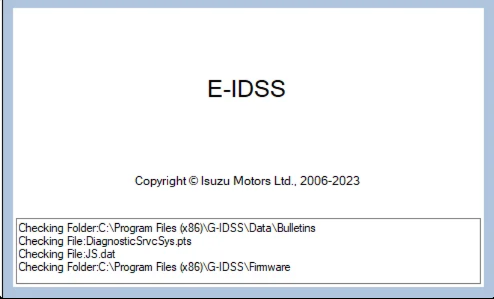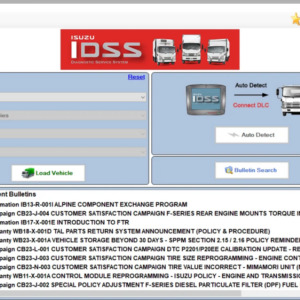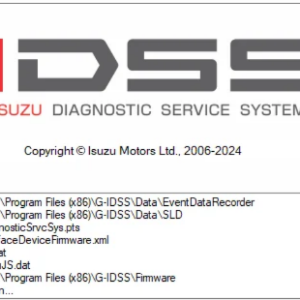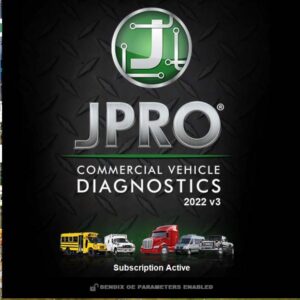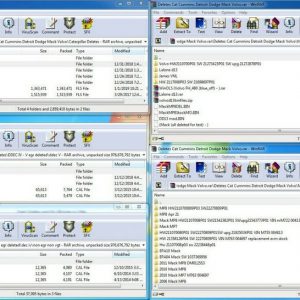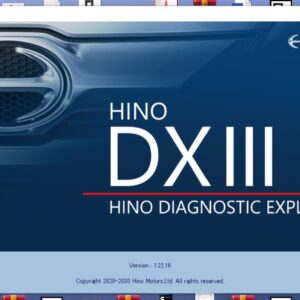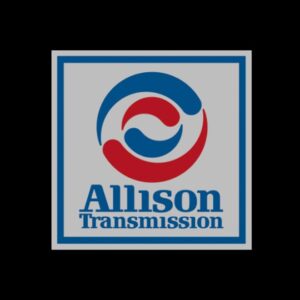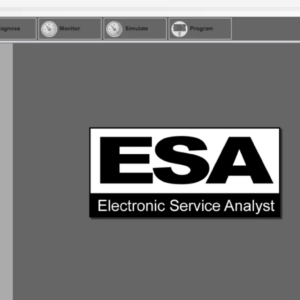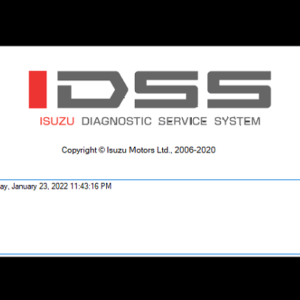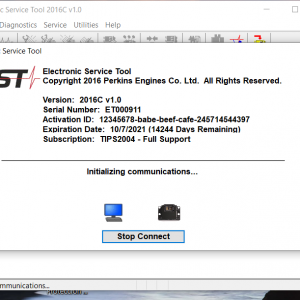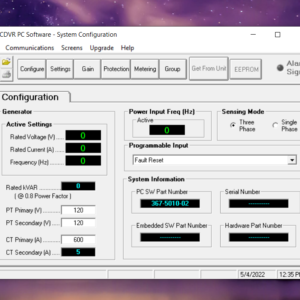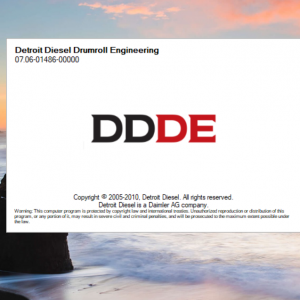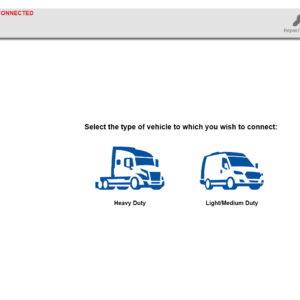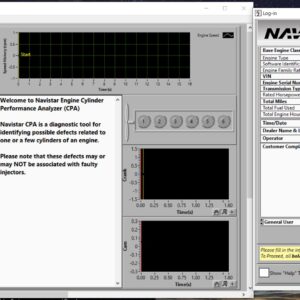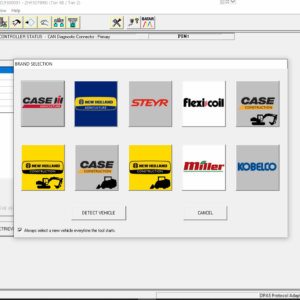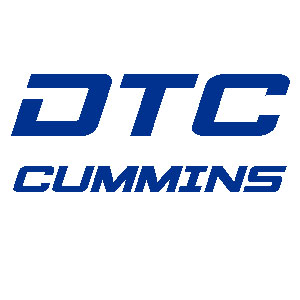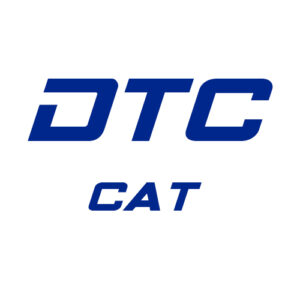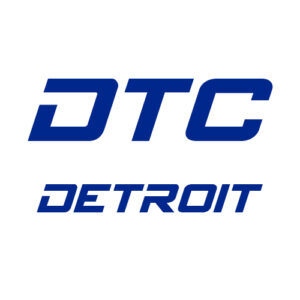This diagnostic trouble code (DTC) indicates malfunction at the aftertreatment diesel particulate filter (DPF) flame temperature sensor. This aftertreatment DPF flame temperature sensor is used to measure engine exhaust gas temperature (EGT) within the flame region of the aftertreatment DPF during aftertreatment DPF regeneration. The aftertreatment control module (ACM) monitors this temperature to detect the existence of the flame. Diagnostic trouble codes (DTCs) may result if the system is unable to light the flame or if there are multiple flame losses. Aftertreamemt DPF regeneration will be prevented until the system is sufficiently warmed-up for the specified duration.
Conditions for diagnostic trouble code (DTC):
1) **Flame Temperature Sensor is not within expected range**
Observable symptoms
1) Regeneration aborted
Probable cause
1 )Flame temperature sensor
2) Exhaust system leakage
3) Exhaust Gas Temperature (EGT) Sensor
4) Basic checks
5) The recommendation is to perform the following checks before any further fault tracing is performed
-
Detroit Diesel Diagnostic Link DDDL 8.0 PRO PROFESSIONAL Software trucks
Detroit $25.00Rated 0 out of 5 -
DPF EGR SCR BAC ERG Delete & Flash CAAT Cummings Detroit Dodge Mack Volvo Collection of DELETE files
CAT $200.00Rated 0 out of 5 -
CAT CDVR PC Software – Caterpillar Digital Voltage Regulator (CDVR) WINDOWS 10
CAT $45.00Rated 0 out of 5
Related products
-
Allison 1000 & 2000 Gen 5 Fault Code:P2669 Actuator Supply Voltage 2 Open
1000 & 2000 Gen 5Rated 0 out of 5 -
Allison 1000 & 2000 Gen 5 Fault Code:P2723 Pressure Control Solenoid 1 (PCS1) – Stuck Off
1000 & 2000 Gen 5Rated 0 out of 5 -
Allison 1000 & 2000 Gen 5 Fault Code:P2730 Pressure Control Solenoid 1 (PCS1) Control Circuit – High
1000 & 2000 Gen 5Rated 0 out of 5 -
Allison 1000 & 2000 Gen 5 Fault Code:P2641 Torque Management Feedback Signal – LRTP
1000 & 2000 Gen 5Rated 0 out of 5 -
Allison 1000 & 2000 Gen 5 Fault Code:P2637 Torque Management Feedback Signal – SEM
1000 & 2000 Gen 5Rated 0 out of 5 -
Allison 1000 & 2000 Gen 5 Fault Code:P2763 TCC PCS Control Circuit High
1000 & 2000 Gen 5Rated 0 out of 5 -
Allison 1000 & 2000 Gen 5 Fault Code:P0979 Shift Solenoid 3 (SS3) Control Circuit – Low
1000 & 2000 Gen 5Rated 0 out of 5 -
Allison 1000 & 2000 Gen 5 Fault Code:P0977 Shift Solenoid 2 (SS2) Control Circuit – High
1000 & 2000 Gen 5Rated 0 out of 5 -
Allison 1000 & 2000 Gen 5 Fault Code:P2685 Actuator Supply Circuit Voltage 3 Low (HSD3)
1000 & 2000 Gen 5Rated 0 out of 5 -
Allison 1000 & 2000 Gen 5 Fault Code:P2764 TCC PCS Control Circuit Low
1000 & 2000 Gen 5Rated 0 out of 5 -
Allison 1000 & 2000 Gen 5 Fault Code:U0073 CAN Communication Bus 1 Off
1000 & 2000 Gen 5Rated 0 out of 5 -
Allison 1000 & 2000 Gen 5 Fault Code:P2670 Actuator Supply Voltage 2 (HSD2) – Low
1000 & 2000 Gen 5Rated 0 out of 5
-
CAT 3126E Fault Code: 91-08 PID: Flash Code 32 SPN: FMI: Invalid Throttle Signal
3126ERated 0 out of 5 -
CAT 3406E (Prefix 1MM or 2WS) Fault Code: 00 PID: SPN: 52 FMI: 11 Air Inlet Shutoff Shutdown
3406E (Prefix 1MM or 2WS)Rated 0 out of 5 -
Detroit DD16 GHG14 (2014-16) Fault Code: SPN 3363 FMI 0 (ACM) Diesel Exhaust Fluid Tank Temperature – High
DD16 GHG14 (2014-16)Rated 0 out of 5 -
Volvo All Engines (2013 Emissions) Fault Code: P117800 PID: EMS Starter Motor Deactivated – Cogwheels of Starter Motor and Engine Stuck
All Engines (2013 Emissions)Rated 0 out of 5 -
Allison WTEC II Fault Code: 44 PID: SPN: 16 FMI: Short-to-ground, E solenoid circuit
AllisonRated 0 out of 5 -
Detroit DD15 EPA07 (2007-09) Fault Code: SPN 1037 FMI 0 (ACM) Very High Hydrocarbon Absorption in the Diesel Particulate Filter
DD15 EPA07 (2007-09)Rated 0 out of 5 -
Detroit DD16 EPA10 (2010-13) Fault Code: SPN 4355 FMI 4 (ACM) Line Heater #2 Circuit Failed Low
DD16 EPA10 (2010-13)Rated 0 out of 5 -
Volvo All Engines (2013 Emissions) Fault Code: P24F813 PID: EMS Exhaust Aftertreatment Fuel Air Purge Valve Control Circuit
All Engines (2013 Emissions)Rated 0 out of 5 -
Volvo All Engines (2017 Emissions) Fault Code: P114413 PID: EMS Starter Relay Highside
All Engines (2017 Emissions)Rated 0 out of 5


